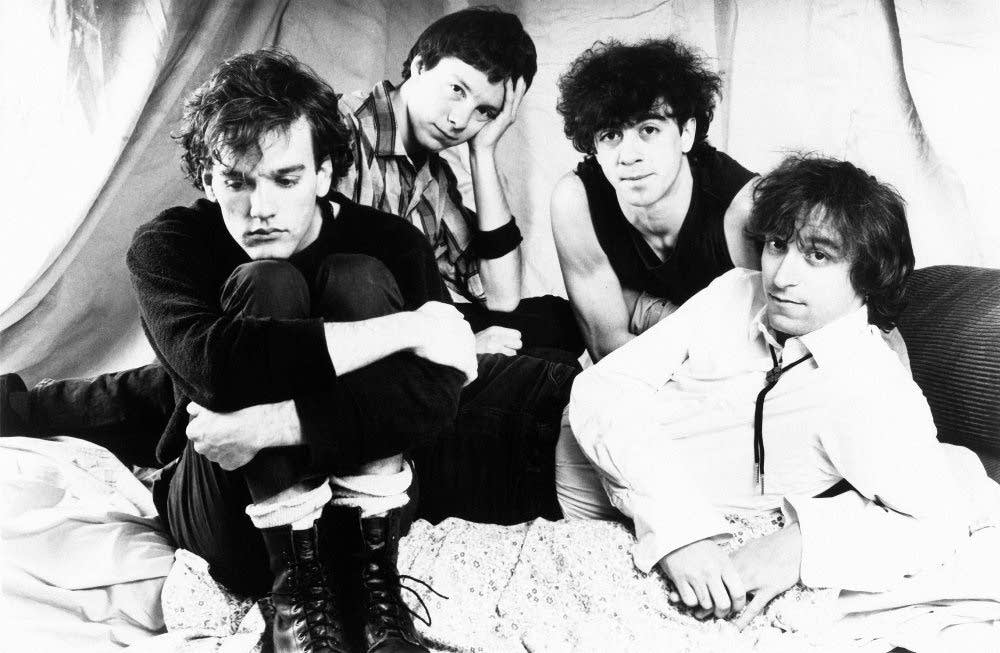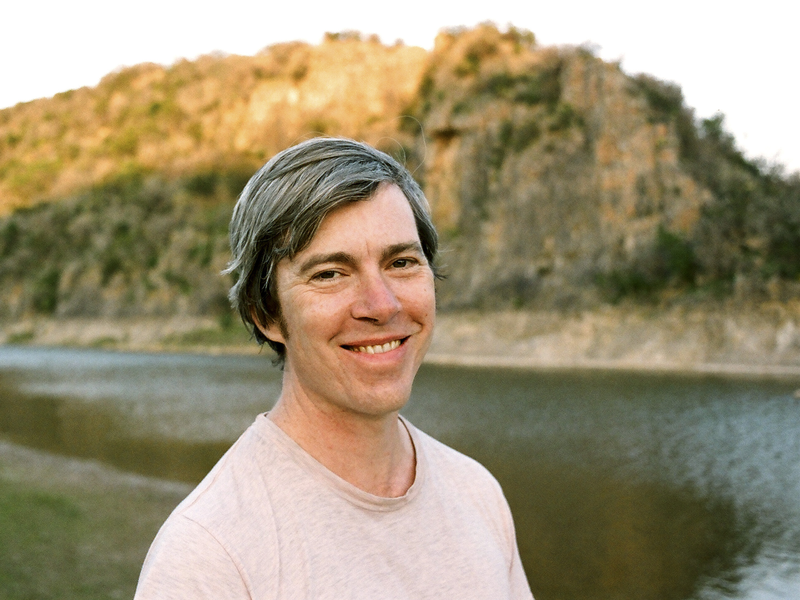ONLY NOISE: Laughing at the Apocalypse with R.E.M.

ONLY NOISE explores music fandom with poignant personal essays that examine the ways we’re shaped by our chosen soundtrack. This week, Erin Rose O’Brien pays tribute to a silly song about the end of the world that helped her conquer apocalyptic anxiety and post-9/11 panic.
1.
Exactly zero karaoke places have the correct lyrics to R.E.M.’s “It’s The End of the World As We Know It (And I Feel Fine).” You can trust me, because I check all of them. At least two karaoke places (private room, I’m not a monster) have the same video, with the same font: a skinny, sans serif caps lock with perfectly round Os. It’s my backup song, the one I do if the room is getting tired, if my voice is shot. It’s a guarantee the room will shout “LEONARD BERNSTEIN” while doing a fist-pump. I make someone else sing the Michael Stipe vocals toward the end so I can sing to the Mike Mills part that goes, “Time I had some time alone.”
Plenty of my friends rightfully hate karaoke, and the other group of my friends are INTO IT. I mean, like, hours and hours. They flex music knowledge via song choice, regardless of your singing abilities, and no matter how well you do, it’s a celebration. “It’s The End of the World As We Know It” is a cop-out choice. You don’t need a lot of talent to pull it off, but I can’t be Stevie Nicks 24/7, so here we are.
2.
Reading about music on Wikipedia as a teenager (a hobby), I found the 2001 Clear Channel Memorandum, a list of songs that were “banned” for Clear Channel radio stations to play. This started in corporate but moved down to zealous station managers. Clear Channel announced later that it was not an outright ban, but a suggestion of songs too sensitive to be played post-9/11.
The list is devastatingly on-the-nose. “Burning Down The House” from Talking Heads’ Speaking In Tongues. U2’s “Sunday Bloody Sunday.” Dave Matthews Band’s “Crash Into Me.” Some are just paranoid choices: all songs by Rage Against The Machine. And behold, there she is, “It’s The End of the World As We Know It (And I Feel Fine).”
Knowing which songs are banned would be my party trick, if people still had those. Last time I was at karaoke I pointed out that the room had picked three of these songs so far. Morbid, yes, but I was young when I came across this list, trying to make sense of the tense, paranoid world my adolescence was set in. I was fascinated.
Long Island was intense post-9/11. Everybody knew somebody, or knew somebody who knew somebody who died, and everybody was angry. Here is what I knew for sure: we should not have invaded Iraq. I cried about it at my 13th birthday party.
Concurrently, I feared the world ending. I waited for it. I was sure of it. I lost sleep in worry. Staring into space didn’t fill me with wonder, but dread. Every unusual star in the sky could be the beginning of the end–I didn’t care how many people told me it would be okay.
3.
“It’s The End of the World As We Know It (And I Feel Fine)” is incredibly literal. A manic pace, a false-quiet bridge like a reckoning, and it goes on for over four minutes, relentless. The world is crashing down and you’re experiencing it in first person. Then the song fades–it doesn’t ever truly end. It’s not R.E.M.’s finest song (that’s “Find The River,” don’t @ me), but it’s at home on Document. “It’s The End of the World As We Know It (And I Feel Fine)” is the lightest of the bunch; even the album’s lead single, “The One I Love,” is morose, darkened by bass.
I’ve been listening to Document a lot lately. Time is elliptical, things come back in style, war is forever. Document is the first R.E.M. album where you can hear Michael Stipe clearly–the vocals and lyrics are no longer obscured. Lyrics jump out as terribly relevant still–“hang your freedom higher,” in “Welcome to the Occupation” is about American intervention in Central America according to Michael Stipe, but there are a thousand sneering applications for it. “Exhuming McCarthy” is anti-capitalist singsong (“You’re sharpening stones / walking on coals / to improve your business acumen.”) Peter Buck told Melody Maker in 1987: “Reagan is a moron and that’s all there is to it. I get upset when I think about him.” There is no doubt that Document is a political record, but it’s one that doesn’t make any grand proclamations about the state of America. It’s as confused and scattered as one might feel flipping through channels.
Comparatively speaking, the lyrics to “It’s The End of the World As We Know It (And I Feel Fine)” are nonsensical, but it’s easy to draw comparisons between them and the 24-hour news cycle. For Michael Stipe, the song did mimic the televised spectacle he was repulsed by; he called it “bombastic, vomiting sensory overload” in a 1987 Rolling Stone cover story on R.E.M. For me, the song mimicked the constant loops of fear in my brain, running down every end of the world scenario. In that same interview, Stipe identified the song’s opening-line earthquake as his biggest doomsday fear: “I usually get headaches when an earthquake happens – when Mexico City went down, I was on my back for three days, really bad.”
“King of Birds” is also based on Stipe’s earthquake sensitivity, specifically, about the idea that animals can also sense when an earthquake is coming. The song treats this power like a burden (“Standing on the shoulders of giants / leaves me cold”). The drums march on, a sober delivery of the inevitable.
4.
The video for the song is of a distressingly messy home (perhaps not even a home). Sixteen seconds in there’s an R.E.M. poster, and nothing else of the band. It has the vibe of a looter going through the destruction for anything he can find; a personal camera to make sure all the details are there. Some toys, a football. A teenage boy poses with a portrait of some forgotten man. Hold on boy and portrait, turn to camera. The boy plays with the found objects, as if to mimic the events leading him to this place. It’s shockingly present-tense–like a post-apocalyptic haul video. And for a song so frantic and searching, so much of it is steady. The camera pulls away from the destroyed home. The boy dances. He does skateboard tricks. He’s gonna be okay.
By my account, I’ve survived several apocalypses. Folklore prophecies, scientific, geopolitical. There was a 2012 Family Radio Judgement Day sticker stuck to a telephone pole in my hometown for years–it withered after time. I’m still here, until climate change kills us all.
Everyone on Twitter jokes about wanting something to put us out of this misery. I am obsessed instead with survival. Not prepper-level, but emotional. No longer the child who stayed up in fear of a strange light in the sky, I seek out anything that laughs in the face of death. Hand me the microphone. I got this one.



